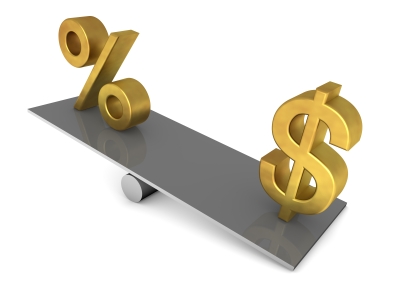As market mariners, we’re always watching the financial waves to know which way the wind is blowing and whether a swell is headed our way.
 After discovering the painful price of myopia in 2008, we’re not only diligently watching the horizon, but we spend a lot more time talking to smart people from a variety of financial disciplines. In fact, we talk to a really smart guy in this episode!
After discovering the painful price of myopia in 2008, we’re not only diligently watching the horizon, but we spend a lot more time talking to smart people from a variety of financial disciplines. In fact, we talk to a really smart guy in this episode!
If you recall, there was a big wave of money that rolled into the stock market in the 90’s. A big chunk was the savings of the baby boomers who were in the height of their asset building years.
Another big chunk came from the Fed as it provided the marketplace lots of liquidity (sound familiar?) to head off the Y2K “crisis” (remember that?).
Of course, before long the stock market…and especially the tech sector…was booming!
Eventually, the tech stock boom busted, and right on its heels came 9/11, and so the Fed pumped even MORE liquidity into the system. But this time, investors who’d been burned by stocks, took all that cheap money and jumped into real estate indirectly (through mortgage backed securities) or directly (through individual properties).
Then…ka-BOOM…the MBS market imploded, real estate tanked, banks failed, and we had a crash of EPIC proportions. In response, the Fed…you’ll never guess…pumped even MORE liquidity into the system. And guess what? Today, the stock market is at all time highs.
We’re detesting…er, detecting a pattern here.
So we want to know if the stock market is vulnerable to a crash. And what can the stock market tell us about the future of real estate?
Since we’re not stock market experts (we can barely read the charts at the optometrist), we thought we’d call in someone who spends most of their time studying such things.
In the studio on location in sunny San Diego, which (contrary to Ron Burgundy’s dictionary) does not refer to a female whale’s anatomy:
- The Captain of your broadcast boat, host Robert Helms
- His First Mate (in a purely platonic way), co-host Russell Gray
- Our stow-away guest from Dow Theory Letters, Matt Kerkhoff
In stock trading, and really any kind of trading, there are two kinds of analysis: fundamental and technical. Another way to think of them are: logical and emotional. One is about the business. The other about the market.
With fundamental analysis, an investor looks at the company’s financial performance, competitive risks, sector dynamics, vulnerabilities, opportunities, the management team, etc. In other words, it’s a LOGICAL assessment of the BUSINESS.
This is the way most real estate investors analyze properties. Why? Because most real estate investors are making LONG TERM investments. Ditto for stock investors.
Traders, as opposed to investors, are usually looking to move in and out of positions quickly hoping to scrape a few basis points of profit out of each trade. To do this, they try to exploit the irrational nature of market participants.
In other words, people aren’t always logical when making investments (ya think?). Sometimes they get greedy and overpay. Sometimes they get scared and sell too cheap. And in today’s technologically driven world, some trading is done automatically by computers.
Big players have figured out they can trick the computers into buying or selling if prices can be pushed up or down temporarily.
Trading is not for the faint of heart. Ironically, successful traders control their emotions and use logical analysis of the market’s emotional indicators to place their bets. This reading of the moods of the market is called technical analysis.
 One of the main tools of the trader are technical charts. These charts show the ups and downs, trading volumes and “patterns”. The patterns measure the predictable responses of market participants to various trading feedback (support, resistance, averages, etc.).
One of the main tools of the trader are technical charts. These charts show the ups and downs, trading volumes and “patterns”. The patterns measure the predictable responses of market participants to various trading feedback (support, resistance, averages, etc.).
On our upcoming Investor Summit at Sea™, Rich Dad Paper Asset Advisor Andy Tanner will be helping us understand all of this and how it relates to real estate investing.
The point is that technical analysis doesn’t really consider the fundamentals. So while fundamental analysis is about understanding the business issuing the stock, technical analysis is about understanding the market…that is, the PEOPLE trading the stock. And there are both long term and short term patterns of behavior.
As any mortgage pro can tell you, when the stock market is up, so are interest rates. When the stock market is down, interest rates drop. As real estate investors using mortgages to control property and arbitrage cash flows, we care about interest rates.
Now you may be thinking, “If it’s true that interest rates rise when stocks do, then why are interest rates so low, while the stock market is so high?”
What a GREAT question. We have such smart listeners.
So put a new battery in your thinking cap, and let’s take a moment to get our mind around this important concept. Because when a market isn’t behaving is it should, it tells you that something might be amiss. And if miss it, it can sneak up and bite you.
Here’s deal in simple terms: When people sell stocks (equities), it’s because they are afraid of risk. So they want to move to the front of the line (debt eats before equity) and buy debt (bonds). Creditors (bond holders) get paid before equity (stock holders). Are you with us so far?
Now, when more people sell something the price goes down. So as people leave the stock market (sell), stock prices drop. Conversely, when people enter the bond market (buy), bond prices rise. Make sense?
Here’s the hardest part to track with. So take a deep breath and we’ll do this together…
When bond prices go UP, bond yields (interest rates) go down. Here’s why: If you have a bond, it’s like a certificate of deposit…you loan your money to the bank, and they give you a promise to pay you back with interest. Simple, right?
But with a bank CD, everything stays static because no one is trading the CD (that you can see). So if you buy a $100,000 CD and it pays you 5% interest (good luck finding that, but it keeps the math simple), you get $5,000 per year in interest for loaning the money to the bank. Got it?
But what if you wanted to sell your CD to a private investor?
If the investor wanted to buy your CD and get 5%, he’d pay you $100,000. But what if the investor wanted 10% yield on his investment? Then, he’d only be willing to pay you $50,000. Why? Because the bank is only committed to pay $5,000 per year on the CD.
And if the investor (your buyer) insists on a 10% return on his money (he doesn’t care about yours) and he’s buying $5,000 a year in interest, he can only pay $50,000 for it because $50,000 x 10% is $5,000. See?
 This is an overly simplistic explanation of the inverse relationship between bond prices and bond yields, but it gives you the basic concept.
This is an overly simplistic explanation of the inverse relationship between bond prices and bond yields, but it gives you the basic concept.
When bonds get bid DOWN (pay less for the same yield), yields (cash on cash return) go UP (as explained in our CD example). And the reverse is true (as we’ll show you in a moment).
Once you get it, you’ll go “duh”. Until then, it’s a head-scratcher.
But it’s a very important principle…and based on the way people are piling into bonds even when yields (interest rates) have no where to go but up, we can tell many investors don’t get it.
So back to the stock and bond market…
When people get afraid and sell their stocks to buy bonds, the price of stocks falls (more sellers than buyers), while the price of bonds rises (more buyers than sellers), so interest rates go down as bond prices go up. Huh?
It’s like this: In the prior scenario, no one wanted your CD for $100,000. You had to sell it at $50,000 to get the buyer because the market demanded a 10% yield. But what if people were really scared, so they wanted the safety of the CD even if they have to pay MORE? Remember, when you pay more ($) you get less (%).
Now, if someone were to offer you $200,000 for your $100,000 CD (you’d be happy!), and the CD paid $5,000 per year, what yield is your buyer willing to settle for? Half what you’re getting. So if you’re getting 5%, your buyer is only getting 2.5%. Let’s check the math…
$200,000 invested / $5,000 annual yield = 2.5% rate of return. Hey! It worked!
Now with this basic understanding, why would interest rates be so low while stocks are so high?
 It seems that people are putting money into the stock market (bidding it up), but somebody is also buying bonds to keep them up too (bonds up means interest rates down). Weird.
It seems that people are putting money into the stock market (bidding it up), but somebody is also buying bonds to keep them up too (bonds up means interest rates down). Weird.
There are a couple of things going in, all of which are abnormal, and would be described as “distortions” by David Stockman, in his NY Times best-seller, The Great Deformation. (This and other great books on economics and investing can be found in The Real Estate Guys™ Recommended Reading Store.)
First, the Fed has been buying bonds like crazy through their Quantitative Easing program. This artificially bids up bonds and pushes interest rates down,which is why they do it. But all this extra bond buying is abnormal and distorts the market. History says, QE leads to booms, bubbles and ultimately, a bust.
Also, you may have heard that many businesses have been borrowing at these low interest rates in order buy back their own stock. This is also abnormal and drives up stock prices with money that would otherwise go into expanding the business. No surprise then that stocks are going up, while employment and productivity aren’t. Again….weird. Usually, rising stock prices reflect a healthy and growing business climate.
Third, yield starved conservative investors and savers have been forced to buy stocks and accept substantial market risk…risks they normally wouldn’t take. When people start putting money in places they wouldn’t, they’re prone to move it quickly if things look dicey.
All of these obvious distortions, and a whole host of lesser and sometimes unseen and unanticipated abnormalities, cause market emotions to run high.
There’s one group of people who are giddy with greed and pouring into stocks believing the party will last forever. There’s another group of people who are reluctant participants and have their running shoes on and one eye on the exit.
Most people in the paper asset space don’t really know how to do real estate, nor do they want to. It’s messy. There isn’t all kinds of infrastructure to support stay at home real estate investing, they way there is with paper assets. The closest thing are REITS (Real Estate Investment Trusts that are publicly traded).
But in deformed markets, people do things they wouldn’t normally do, in order to earn profits and/or avoid risks.
So, since you’ve read all the way down this lengthy post, here’s the pay off: There’s a HUGE OPPORTUNITY for real estate investors to attract capital from frustrated investors trying to find a good yield with reasonable risk. If you develop the knowledge, experience and relationships to buy and manage income producing real estate in a market like this, there’s BILLIONS of dollars looking for a home (pun intended). 🙂
But to talk with affluent investors about investing with you, you’ll need to know how to both explain the benefits of real estate as well as the risks of paper assets. So even though you may not be a stock investor, it’s a good idea to understand how the stock, bond, commodities and real estate markets all interact. This episode can help!
And if you like Matt Kerkhoff, come spend a week with Matt, along with Andy Tanner, Peter Schiff, Anthem Blanchard, Ken McElroy and the rest of our outstanding faculty on the 12th annual Investor Summit at Sea! Meanwhile, enjoy listening to us talk with Matt about Booms, Busts and Bubbles!
Listen now:
- Don’t miss an episode of The Real Estate Guys™ radio show! Subscribe to the free podcast
- Stay connected with The Real Estate Guys™ on Facebook!
The Real Estate Guys™ radio show and podcast provides real estate investing news, education, training and resources that help real estate investors succeed. Visit our Feedback page and tell us what you think!













